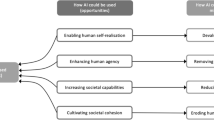Abstract
Guidance policies are often formulated in general terms. The recent European Union Resolution on Lifelong Guidance, for example, runs along two main lines. One line pursues the policy goal of creating a more inclusive society with active citizens. The other line pursues global competitiveness. These two pursuits may seem to present conflicting policy goals. The dilemmas that guidance practitioners encounter in this context are typically for individual guidance practitioners to resolve on their own. This article points to some of the issues at stake in terms of policy-making against social exclusion, and it suggests three possible guidance strategies: solving, preventing and coping.
Résumé. Politiques d’orientation: le cheval de Troie
Les politiques d’orientation sont souvent formulées en termes généraux. La récente Résolution de l’Union Européenne des syndicats concernant l’orientation tout au long de la vie, par exemple, trace deux axes principaux. L’un de ces axes correspond à un but politique de création d’une société qui comprenne davantage de citoyens actifs. L’autre axe correspond à un objectif de compétitivité globale. Ces deux axes peuvent sembler correspondre à des buts politiques contradictoires. La résolution des dilemmes que rencontrent les praticiens de l’orientation dans ce contexte est en général laissée à leur libre appréciation. Cet article pointe certains des problèmes en jeu en termes de définition d’une politique contre l’exclusion sociale et suggère trois stratégies possibles d’orientation: résolution, prévention et adaptation.
Zusammenfassung. Berufsberatungs-Politiken: Das Trojanische Pferd
Berufsberatungpolitiken sind häufig auf der Grundlage allgemeiner Leitlinien formuliert. Die aktuelle Europäische Resolution zur lebenslangen Berufsberatung beispielsweise orientiert sich an zwei Hauptlinien. Eine Linie verfolgt das politische Ziel, mit aktiven Bürgern eine Gesellschaft zu entwickeln, die stärkere Beteiligung ermöglicht. Die andere Linie betont die globale Konkurrenzfähigkeit. Diese beiden Zielsetzungen könnten auf den ersten Blick als konkurrierende politische Ziele aufgefasst werden. Die Dilemmata, denen Berufsberaterinnen in diesem Zusammenhang ausgesetzt sind, sind typischerweise für das Feld der Berufsberatung von den BeraterInnen alleine aufzulösen. Dieser Artikel weist im Sinne einer Politik gegen sozialen Ausschluss auf einige Aspekte hin, die auf dem Spiel stehen, und er schlägt drei mögliche Beratungsstrategien vor: Lösung, Vermeidung und Anpassung.
Resumen. Políticas de Orientación: el Caballo de Troya
Las políticas de orientación se suelen formular en términos generales. La reciente Resolución de la Unión Europea sobre el Aprendizaje a lo Largo de la Vida, por ejemplo, se plantea en torno a dos ejes o líneas principales. La primera tiene como objetivo la política de crear una sociedad más inclusiva con ciudadanos activos. La otra línea promueve la competitividad global. Parece que estas dos finalidades podrían llevar a metas políticas contradictorias. Los dilemas que se les presenta a los orientadores en este contexto normalmente tienen que resolverlos por su cuenta. Este artículo pone de manifiesto algunas cuestiones que están en juego en relación a las políticas contra la exclusión social, y sugiere tres estrategias de orientación posibles: resolución, prevención, y manejo de la situación.
Similar content being viewed by others
References
P. Bagguley K. Mann (1992) ArticleTitleIdle thieving bastards?: Scholarly representations of the “underclass” Work, Employment and Society 6 IssueID1 113–126
Boundien, P. (1979). La distinction. Gitique soriale out jugement [The distinction. Social critique of judgment]. Paris: les Editions de ninuit.
Clayton, P. (2000). Opening doors: Social exclusion, adult vocational guidance and access. Retrieved September 30, 2004, from University of Glasgow, Department of Adult and Continuing Education Web site: www.gla.ac.uk/wg
Council of the European Union (2004). Draft resolution of the Council and the representatives of the Member States meeting within the Council on Strengthening Policies, Systems and Practices in the field of Guidance throughout life in Europe (8448/04 EDUC 89 SOC 179). Retrieved January 4, 2005 from European Commission Web site: http://europa.eu.int/comm/education/policies/2010/doc/resolution2004_en.pdf
InstitutionalAuthorNameOrganization for Economic Co-operation and Development (2004) Career guidance and public policy: Bridging the gap Author Paris
InstitutionalAuthorNameInternational Labour Organization (2004) Recommendation concerning human resources development: Education, training and lifelong learning (ILC92-PR20-261-En.doc 20/91) Author Geneve
Jones, D. (1997, December). Bringing everyone inside the stockade. Adults Learning, 14–15
Lloyd, J. (1997, August 29). A plan to abolish the underclass. New Statesman, 14–16
Plant, P. (2004a). Guidance corners and educational ambassador in Denmarks. Retrieved September 30, 2004, from University of Glasgow, Department of Adult and Continuing Education Web site: http://www.gla.ac.uk/wg/pilotdke.htm
Plant, P. (2004b). Flexibilitet, omstilling og hvidt tøj [Flexibility, transition and white uniforms]. Unpublished report, Royal Copenhagen, Glostrub, Denmark
Vägledarförening Sveriges (2004) Etisk deklaration och etiska normer för studie- och yrkesvägledning [Ethical declaration and ethical norms for career guidance] Author Njurunda
G. Watt (1998) Supporting employability: Guides to good practice in employment counselling and guidance European Foundation for the Improvement of Living and Workings Conditions Dublin
A. G. Watts (1999) ArticleTitleMind over a matter of social exclusion Careers Guidance Today 7 IssueID1 9–14
A. G. Watts J. McCarthy (1996) Non-formal guidance for young people at risk National Centre for Guidance in Education Dublin
A. G. Watts R. Van Esbroeck (1998) New skills for new futures VUBPress Brussels
Author information
Authors and Affiliations
Corresponding author
Rights and permissions
About this article
Cite this article
Plant, P. Guidance Policies: The Trojan Horse. Int J Educ Vocat Guidance 5, 101–109 (2005). https://doi.org/10.1007/s10775-005-8788-z
Issue Date:
DOI: https://doi.org/10.1007/s10775-005-8788-z




